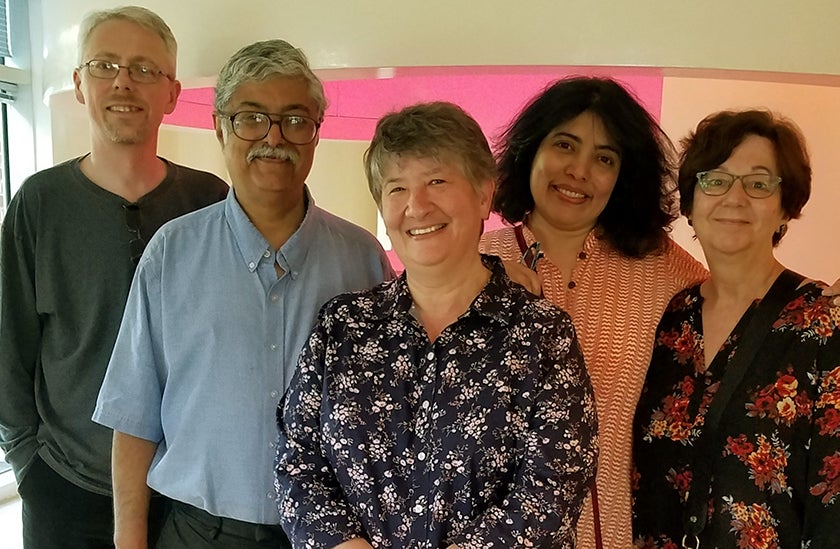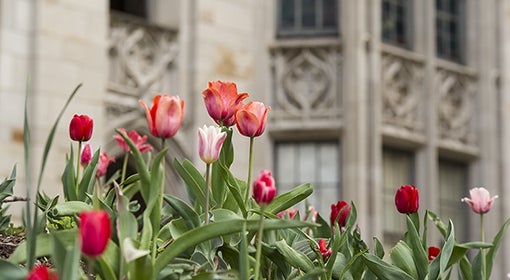 Christine Biancheria hangs a watercolor on the wall of her Pittsburgh home. She admires the soft hues and brushstrokes, but that’s not the sole reason she recently purchased the painting. She is enthralled with how, in a meaningful way, she is connected to the artist—a child in India.
Christine Biancheria hangs a watercolor on the wall of her Pittsburgh home. She admires the soft hues and brushstrokes, but that’s not the sole reason she recently purchased the painting. She is enthralled with how, in a meaningful way, she is connected to the artist—a child in India.
Seeds of that connection can be traced back almost 30 years ago to Biancheria’s law school days at Pitt. During her studies, she had an international human rights fellowship at the International Commission of Jurists in Geneva, Switzerland. There, she befriended Dilbur Parakh, one of the commission’s attorneys.
Biancheria (A&S ’90, LAW ’94) returned to Pittsburgh and, with a partner, opened a private law practice. Meanwhile, Parakh, who trained as an attorney in Mumbai, returned to her home to co-found Aseema, a nonprofit that provides free, high-quality education to the region’s impoverished children.
After Biancheria’s partner died in 2016, she decided to close her practice and visit her friend in Mumbai. When she saw what was being accomplished, she wanted to help. So, she formed the nonprofit Friends of Aseema, which raises funds for Aseema school programs.
Today, Aseema helps, directly and indirectly, more than 4,000 children in Mumbai and elsewhere.
Unfortunately, though, the pandemic’s onslaught led to economic uncertainty and decline in donations.
But Friends of Aseema helped come to the rescue, including teaming up with Artrepreneur, an online platform for artists, to launch a global online auction last fall of the children’s art, with the proceeds going to Aseema.
One of those paintings now hangs on Biancheria’s wall.
This story appears in the Spring 2021 edition of Pitt Magazine.




